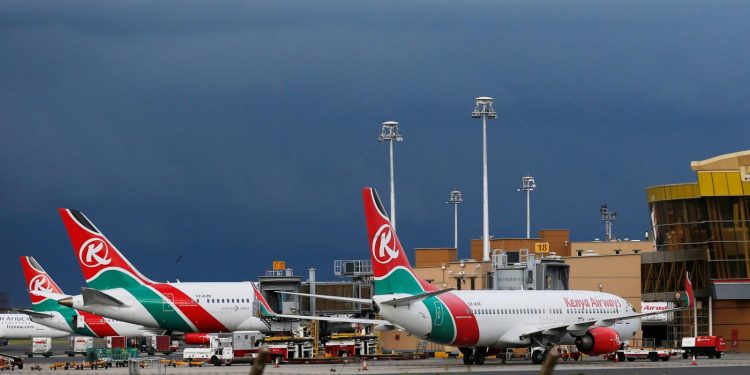Kenya Airways recalls sacked staff as demand for flights picks up
National carrier Kenya Airways is recalling some of its former employees who were affected by restructuring last year meant to conserve cash in the wake of Covid-19 that disrupted business.
The recruitment, which has been going on in the last two months, follows growing demand for air travel as passengers, especially on local destinations, that has seen competition among carriers increase.
Kenya Airways’ cut its workforce last year to survive the Covid-19 turbulence. It also resorted to a hiring freeze, and unpaid leaves to stabilise its operating costs.
An official at the airline said there has been a growing demand in recent days and the carrier has added some frequencies to accommodate a growing number of passengers, hence the need for increasing the manpower.
“We have seen an increase in demand and that is why we are recalling some of our employees,” said an official from the airline.
Last month, KQ, as the airline is known by its international code, introduced a larger aircraft on Mombasa destination following the high number of passengers on the route.
The carrier upgraded the aircraft on the route to a Boeing 737-800 from an Embraer 190.
The airline has been upgrading its frequencies of late to match the rising number of passengers on both local and international route.
Last week it increased the frequencies to the UK to two weekly after Britain removed Kenya from the red list of countries, which barred travellers from Kenya from going to the UK. The carrier also started flights to France after suspending the route a while back.
The airline lost 1,123 employees to close 2020 with 3,652, in a period when coronavirus-related air travel restrictions saw it record the highest loss in its history. Half of the airline staff left through resignations or voluntary early retirements.
The airline posted a Sh11.49 billion net loss in the six months ended June— a 19.8 percent cut from the Sh14.33 billion loss it incurred in the preceding similar period, taking its accumulated losses over the years to above Sh127 billion.
Passenger revenue dropped by 17 percent to Sh20.23 billion while cargo revenue went up 60 percent due to increased focus on freight operations, especially Covid-19-related essentials like vaccines.
KQ says the long recovery prospects and diminishing revenue in an environment of increased costs due to tight health and safety measures mean it will require a bailout to stay afloat.
“The financial situation of the company is precarious,” said KQ chief executive Allan Kilavuka during investors briefing recently.








